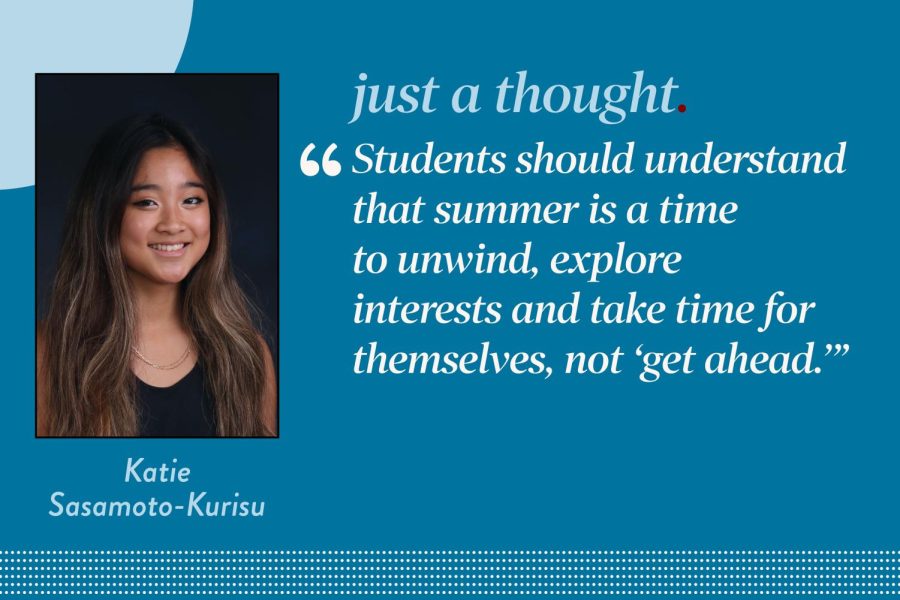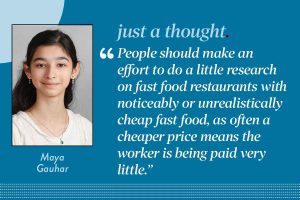For summer activities, prioritize passion over résumé
Midway Staff
Katie Sasamoto-Kurisu argues that engaging non-academic or nonprofessional summer experiences can be as or more valuable than a prestigious pre-professional position.
March 23, 2023
As students begin to organize their plans for this summer, they are faced with many choices about what to pursue during their free months. While activities range across the board, an especially popular decision is participating in some kind of educational or professional enrichment, often a selective summer internship or pre-college program at a university.
Often students are drawn to these selective programs because they want to build their college résumés rather than explore a topic of genuine interest. It is important that students understand that engaging in experiential activities can be equally or potentially more valuable than a pre-professional position, offering both a character- and résumé-building summer.
Academic or professional programs themselves can be valuable and rewarding for participants, offering professional guidance and exposure to a specific field of interest. Despite this, a large part of their attraction stems purely from the desire to use academic experience as a key component for applications, checking a box.
This fosters an overarching sense of unnecessary competition with students wanting to further themselves over peers, even between students who have entirely different interests and personal goals. Students should be genuine in their intentions in any activity, doing it for themselves and their interests, not for an application.
While these opportunities have their value and can be the right choice for some, students should understand that summer is a time to unwind, explore interests and take time for themselves, not “get ahead.” It is the only part of the year that is not consumed by school and should be considered differently than year-round activities or programs.
There is value in non-academic or nonprofessional summer experiences, such as getting a job working as a lifeguard or at a nearby restaurant. While these activities don’t boast a title upheld by a high-ranked university, they do invite a host of valuable skills such as learning how to work with different types of people and time management on a schedule that can be gained through participation and time commitment. These are real-life experiences rather than topics one can learn in a class.
The habits the participant learns from the experience will supply them with transferable skills that could be used as effectively on a résumé later on. Working on a team, showing up on time, building personal relationships — these are all résumé skills that can be gained from an experiential program.
As students plan their summer schedules they should think about what really interests them and how the option they choose aligns with that. One can have an enriching and fun summer without the need to participate in a competitive or selective program. Regardless of what they decide, students should choose their summer activities, like any activity, for the right reasons: genuine interest, curiosity and enthusiasm, not as a selling point or prestigious title.




























































